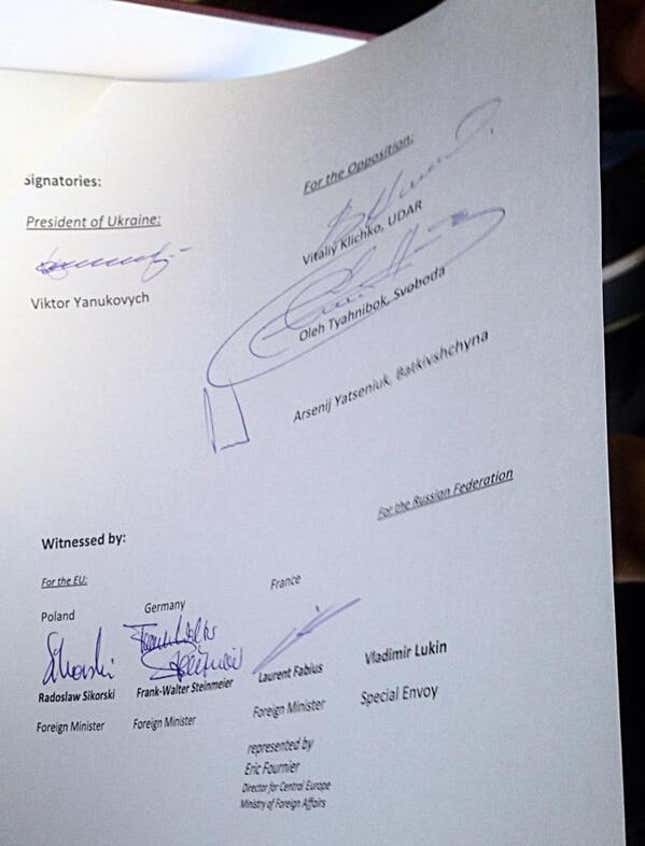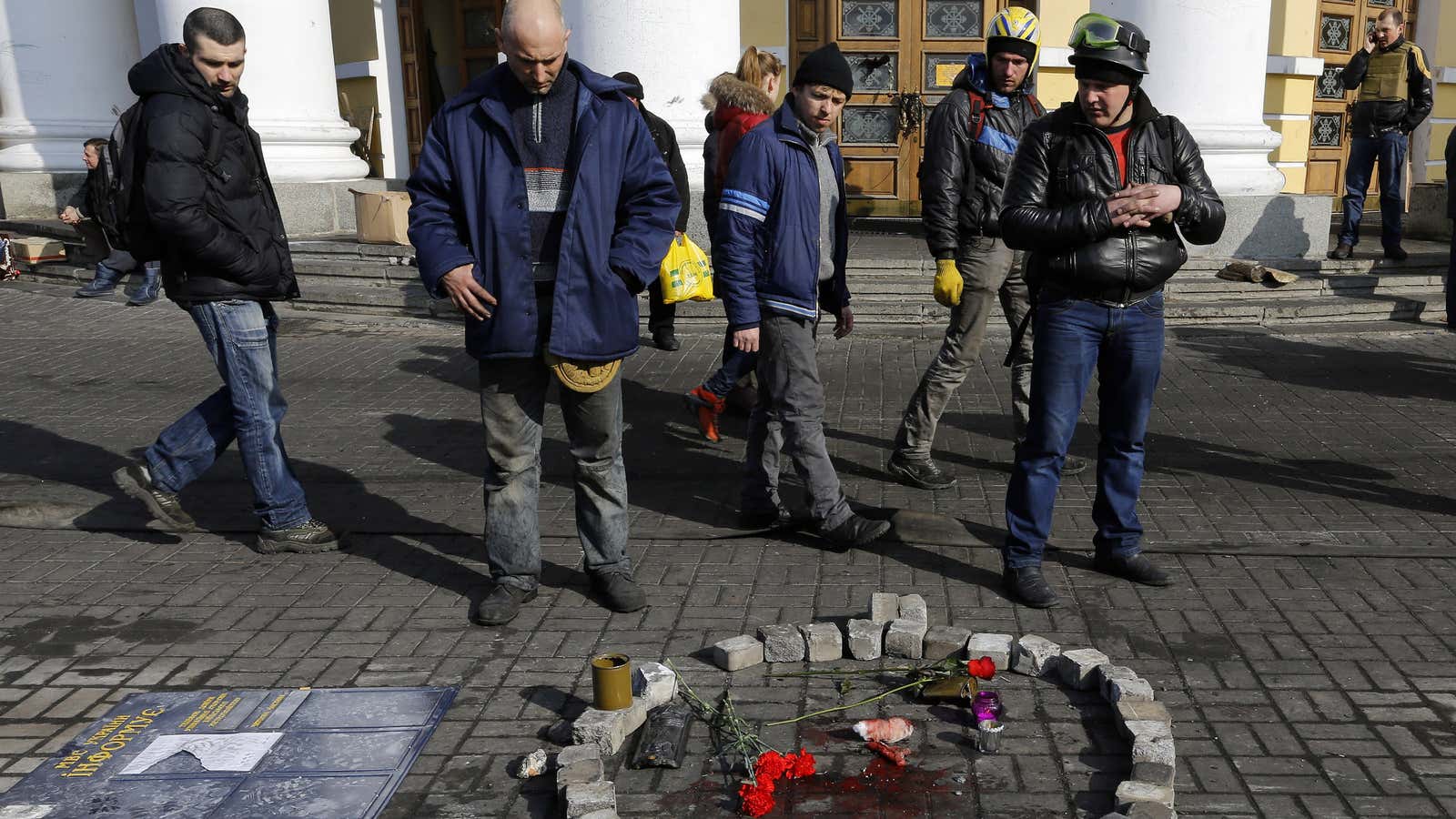Ukrainian President Viktor Yanukovych blinked today by agreeing to early elections. The parliament followed up by diluting the president’s powers. The question now is how the street will react.
“That’s not clear,” said Oleh Shamsur, Ukraine’s former ambassador to the US, speaking on a video call arranged by the Atlantic Council. Shamsur expects protesters around the country to hold their positions until it is clear that new elections will be “fair and democratic, that the country has started to change.” From Kiev, NBC News reporter Richard Engel tweeted soon after the deal was signed:
Yanukovych’s apparent capitulation followed an extraordinarily bloody day yesterday, with dozens of civilians and police shot dead. European diplomats rushed to Kiev and, after negotiating through the night, emerged with the agreement to accelerate presidential elections scheduled for a year from now. In addition, Yanukovych agreed to opposition demands to return to the 2004 constitution, with its stronger parliament, and to share power with his opponents until the election.
The Ukraine parliament today voted to free opposition leader Yulia Timoshenko, currently in prison on charges by Yanukovych, her blood enemy. It’s not immediately clear when her release might happen, but it could dramatically change the power dynamics at play. Timoshenko’s first move upon her release is likely to press for corruption charges against Yanukovych and his son. With international backing behind her, that could be a real menace to him.
Loose ends remain. No date was set for the early elections. And Russia does not appear to be on board—Moscow’s representative to the talks, Vladimir Lukin, did not sign the deal (see below).

In addition, there is the matter of how Ukraine will finance itself. The credit rating agency Standard and Poor’s today downgraded Ukraine credit to CCC, and Russia has canceled plans for another $2-billion tranche in a promised $15-billion bailout. In November, Yanukovych balked at stiff terms for Western aid demanded by the International Monetary Fund.
But Shamsur said a new government would be likely to go along with IMF-required reforms, including an end to expensive natural gas subsidies. “There is an understanding of the inevitability of cooperation with the IMF and that presupposes reforms,” he said. “The taste of the pudding is in the eating. But there is an understanding that the country is in need of reforms across the board.”
